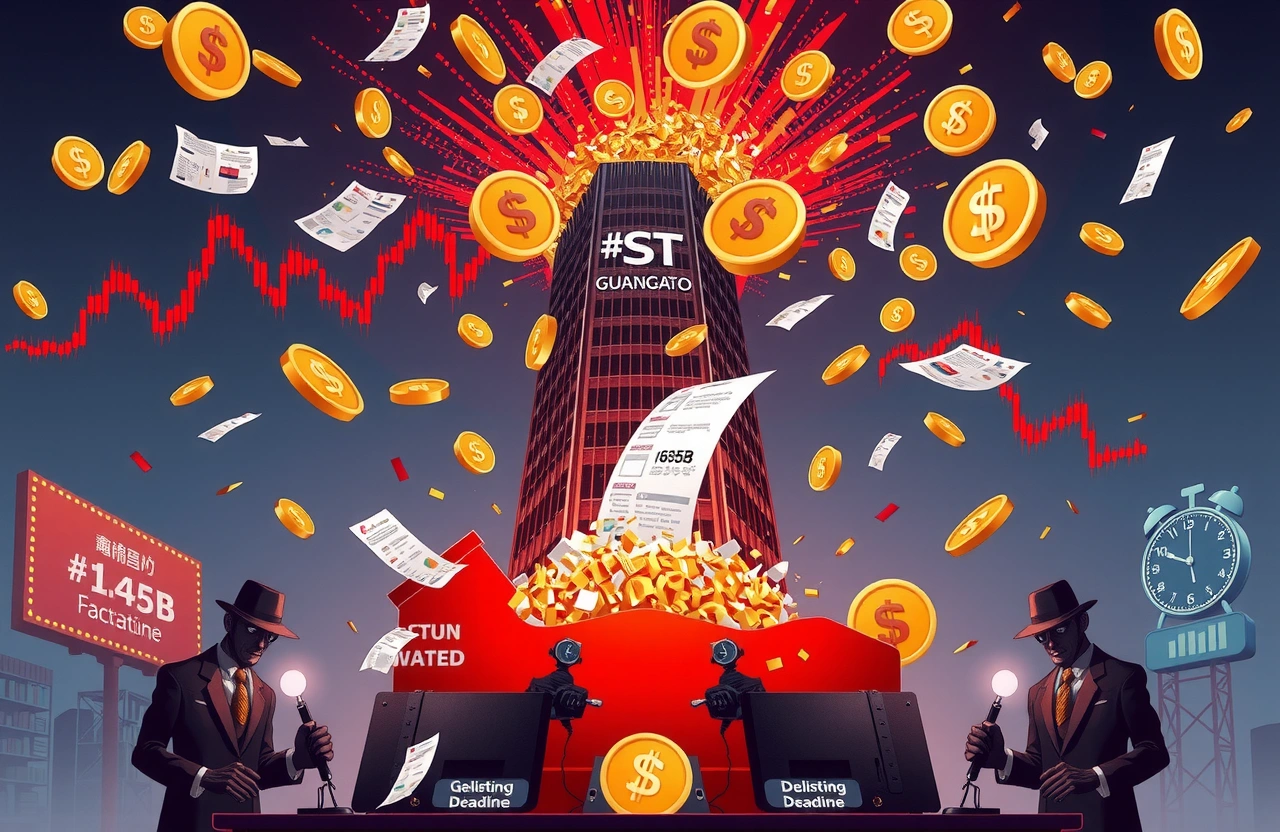The Unprecedented Speculative Frenzy
Between June 25 and July 18, 2025, *ST Guangdao (839680.BJ) defied financial logic with its stock skyrocketing 250%, hitting five 30% daily limit-ups despite pending delisting proceedings. This surge occurred while the company stood accused of fabricating ¥1.465 billion in revenue since 2018 – equivalent to 85-99% of its reported earnings. During this speculative frenzy, the Beijing Stock Exchange halted trading three times after detecting coordinated manipulation across 18 trading sessions.
Regulators Target Illegal Trading
On July 15, regulators suspended two accounts:
- Jing Nana (景娜娜): Artificially maintained ceiling prices through concentrated buy orders
- Wu Xingyuan (吴行远): Executed manipulative wash trades and price ramping
Despite penalties, traders like Huaxi Securities continued pouring funds into the stock, fueling a ¥161 million single-day turnover on July 16.
Anatomy of a Systemic Fraud
According to Shenzhen regulators, *ST Guangdao operated a coordinated fraud mechanism involving:
The Fabrication Network
- Sales contracts forged by commercial department
- Fake invoices prepared by financial division
- Counterfeit bank receipts processed by treasury
- Warehouse teams manufacturing shipping documents
Leadership Involvement
Controlling shareholder Jin Wenming (金文明) orchestrated capital transfers through shell companies while CFO Zhao Lu (赵璐) directed accounting manipulations. Their actions corrupted auditing processes – staff intercepted external verification requests to cover paper trails.
The Troubling Market Psychology
Motivations Behind the Madness
Market analysts observe two speculative triggers:
- Trapped institutions engineered rallies to exit positions
- High-risk traders exploited 30% daily volatility for gambling gains
Brokerage Whack-a-Mole
Dragon tiger board data revealed coordinated rotations between brokerages like Guojin Securities and Guotai Haitong. After regulators penalized individual traders, Huaxi Securities immediately took their place – demonstrating how speculative capital circled between institutions.
Regulatory Reckoning
Historic Penalties Levied
- ¥10 million fine against Guangdao
- ¥15 million personal penalty for Jin Wenming
- Lifetime market bans for executives
- ¥5.6 million quarterly revenue
- Net asset value: ¥65.42 million
The Crucial Warning Signs
Financial Reality Check
Q1 2025 reports reveal true operational collapse:
Contrasting ¥630 million market capitalization demonstrates complete decoupling from fundamentals.
Traders chasing apparent momentum must recognize *ST Guangdao exemplifies extreme ‘greater fool theory’ gambling, not investment. Neither the manufacturing halt nor ¥609 million quarterly loss justify valuations.
Implications for Market Integrity
This case underscores dangerous gaps in China’s capital markets:
Systemic Vulnerabilities
- Multi-year fraud possible through document fabrication rings
- Penalties lag market manipulation speed
- Delisting mechanisms fail to deter speculation
Investor Protection Imperatives
Regulators must prioritize earlier fraud detection through digital payment verification and cross-agency data matching. Furthermore, cooling periods after regulatory actions could disrupt manipulative momentum trading.
Key Takeaways
- *ST Guangdao achieved seven consecutive years of revenue fabrication through coordinated document forgery
- Despite regulatory penalties and suspensions, traders continue propelling the stock through sheer speculation
- The case exposes weaknesses in fraud detection, enforcement speed, and speculative trading deterrents
- Q1 fundamentals reveal complete operational failure, making current valuations irrational
- Investors should avoid similar ‘zombie stocks’ facing delisting regardless of short-term volatility
This unprecedented speculative trading frenzy highlights dangerous gaps between enforcement and market behavior. Investors should heed regulators’ actions – avoiding fundamentally destroyed companies regardless of apparent momentum. For sustainable portfolios, focus on firms with transparent operations and verifiable cash flows rather than gambling on regulatory loopholes. China’s securities watchdogs must accelerate detection systems and penalty implementation to prevent such dangerous disconnections from reality.



